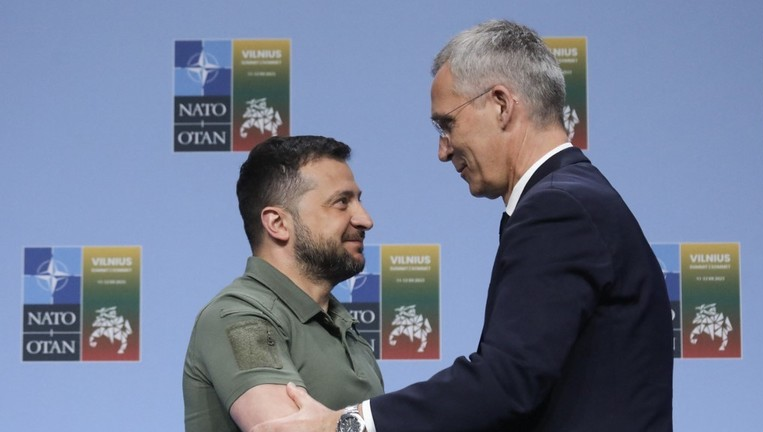NATO will keep arming Ukraine until Kiev decides the time is right to enter negotiations with Russia, Secretary General Jens Stoltenberg declared on Thursday. The statement came after Stoltenberg’s top aide seemingly suggested a deal whereby Ukraine would abandon its territorial claims in exchange for membership in the U.S.-led bloc.
Speaking to Norwegian media, Stoltenberg said that NATO’s priority is “to support Ukraine militarily,” adding that “if you want a lasting, just peace, then military support for Ukraine is the way to get there. There is no doubt about that.”
“It is Ukraine, and only Ukraine, that can decide when the prerequisites for negotiations are present. And who can decide, around a negotiating table, what is an acceptable solution,” he continued. “Our task is to support them.”
Stoltenberg’s statement was not a radical departure from his previous rhetoric on Ukraine. The NATO chief has long insisted that Ukraine will fight until it defeats Russia or chooses to seek peace, but his latest affirmation of support came after his top aide cast doubt on the bloc’s commitment to Kiev’s aims.
Speaking earlier this week, Stoltenberg’s chief of staff, Stian Jenssen, told a conference that a solution to the conflict “could be for Ukraine to give up territory, and get NATO membership in return.” Jenssen claimed that the idea was being actively discussed within NATO.
The remarks set off a wave of condemnation in Kiev, where Ukrainian President Vladimir Zelensky has outlawed negotiations with the Kremlin as long as Russian leader Vladimir Putin remains in power, and has promised to retake all of Ukraine’s former territory – including Crimea.
NATO issued a statement within hours insisting that its Ukraine policy had not changed, while Jenssen apologized and said that his remarks were a “mistake.” He also praised Ukraine’s “heroic effort” against Russia and – contrary to what he had said only a day earlier – claimed that NATO officials were discussing “how much territory Ukraine is able to take back.”
The Ukrainian military has been locked into a counteroffensive against Russian forces since early June, with the operation aimed at pushing south through Russian defensive lines, reaching the Sea of Azov, and cutting off Russian access to Crimea. The operation has so far failed to achieve these goals, with the latest Russian figures claiming that Kiev has lost more than 43,000 troops since June, while managing to capture only a handful of hamlets and villages near Russian lines.
However, there is no sign that Kiev will seek peace in the near future. Despite reports of staggering losses on the battlefield, debates within Zelensky’s cabinet are focused on whether to pour yet more men into the failing counteroffensive, or to dig in.


